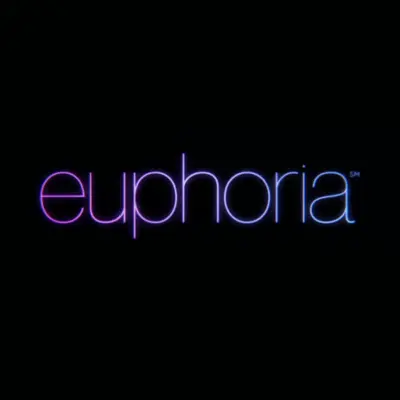Euphoria used real-life influencers who didn't realize they were the butt of the joke
-

This week's episode called out toxic positivity with a “Love yourself! Love yourself!” scene featuring Barbie Ferreira's Kat in a daydream nightmare, surrounded by trendy influencers closing in on her in her bedroom. "This simple setup, feeling sad and turning to social media for comfort, was immediately familiar to me as a viewer," says Cleo Levin. "Who hasn’t turned to YouTube or Instagram in a slump, only to find yourself lost in the algorithm for hours, feeling only a slight headache? The people that appear to Kat represent a familiar combination: an unattainably perfect body—probably made up of leafy greens and egg whites—matched with generically inspiring sentiments. Even body-positive and plus-size influencers seem more symmetrical, more athletic, more photogenic than the rest of us, strategically posed and curated as their accounts are. The impossibility of simultaneously 'pursuing happiness' while eating less than 1,000 calories per day, enduring endless workouts, and/or marketing that happiness is something we forget to think about when scrolling through our timelines. The show cast real models and influencers for this scene, including Jewell Farshad, Bree Kish, and Amanda LaCount. They run the gamut from fitness enthusiasts to beauty vloggers to plus-size dancers. Like the characters they’re portraying, their real accounts are filled with perfectly lit, made up, and posed pictures with captions like, 'What would happen if you stopped fearing the failure of the opportunities in front of you?' or 'No matter what, keep going.' While the words on these people’s posts tell us we can, their pictures tell us we can’t, with contorted yoga poses, or impeccable makeup, or clothes that cost thousands of dollars. Ironically, the influencers that appeared on Euphoria seem to mostly have used it as an experience to further build their brands, posting cute mirror selfies on set, snapping pictures of their call sheets, and exclaiming how this experience was a dream come true. The scene of Kat’s daydream is so effective because it highlights something that—despite our behavior—we all know to be true: Social media makes us feel worse about ourselves, even when it pretends otherwise. Content that is supposed to be affirming and encouraging still reenforces unrealistic ideals. Constantly comparing yourself to people on social media, or just other people you know, is destructive, especially for teenage girls, as Facebook found in an internal investigation. Even for the rare person that really does feel good about themselves, the need to be positive and confident at all times, for the sake of an audience, is itself a burden."
ALSO:
TOPICS: Euphoria, HBO, Social Media, TikTok
More Euphoria on Primetimer:
